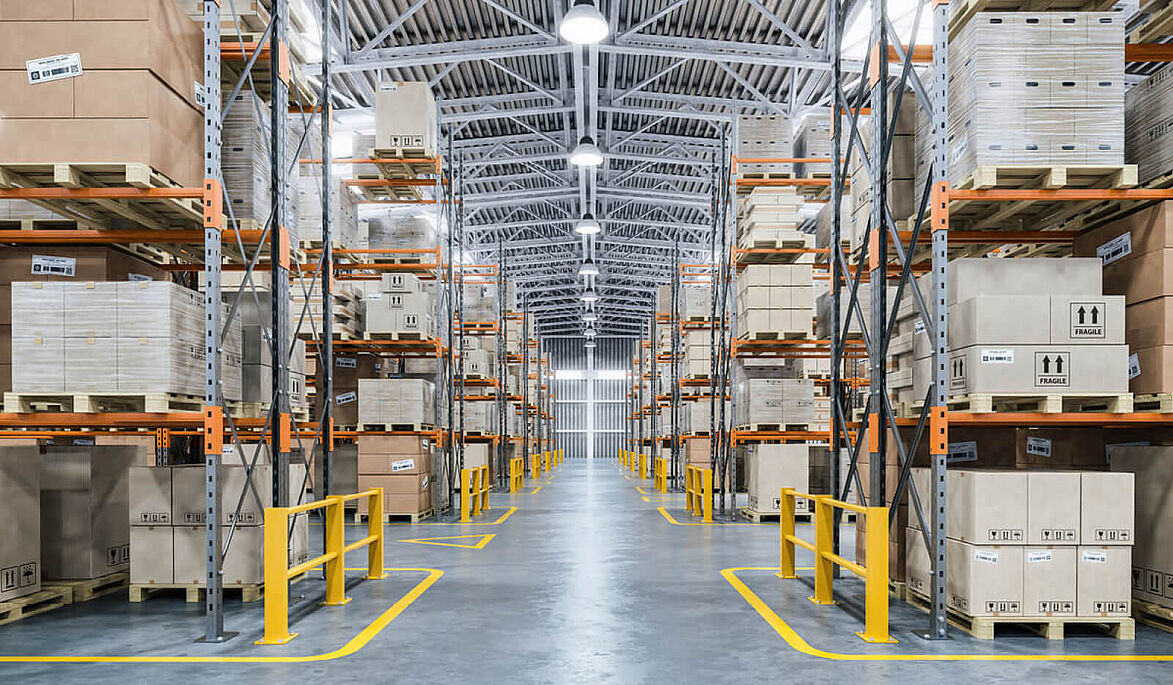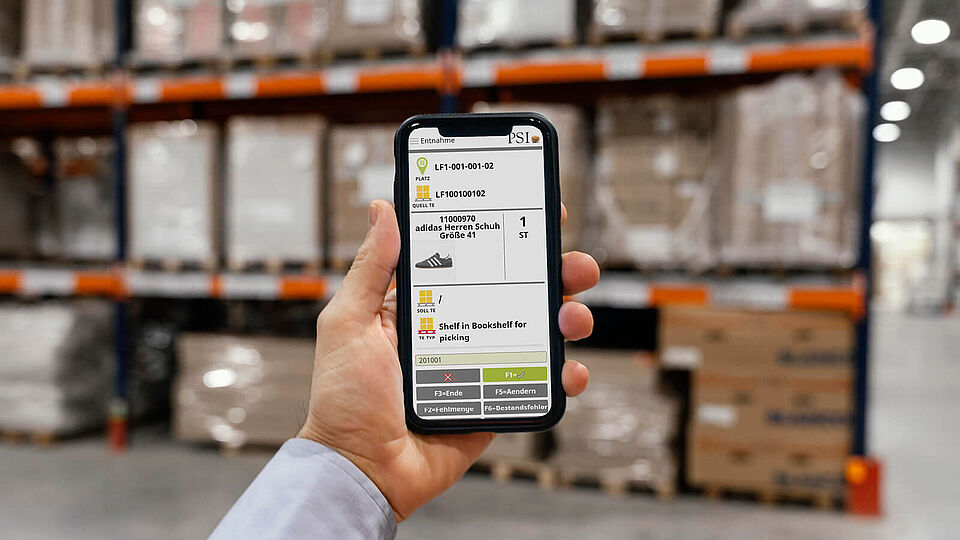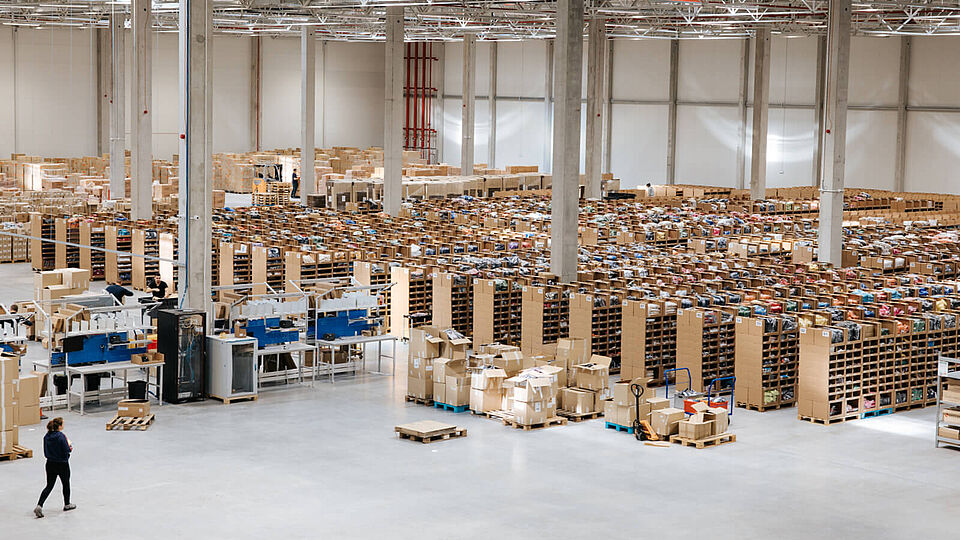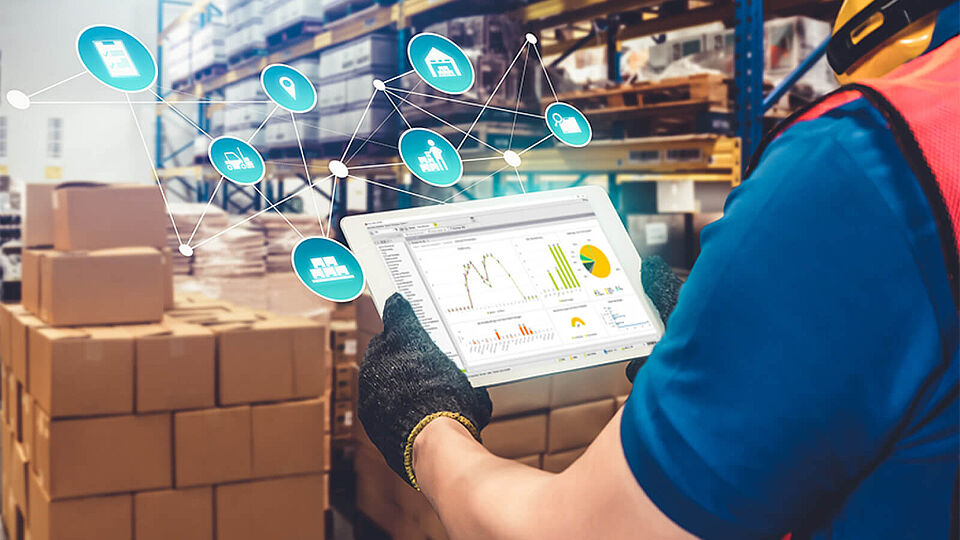The digitalization of your warehouse is imminent. This is a measure that you have planned to take for a long time because you want to drive the digital transformation in your company. But at this point, you are possibly unsure about selecting a specific warehouse management software solution? Do you need a comprehensive warehouse management system (WMS) for your logistics, or is the implementation of an inventory management system (IMS) sufficient for your purposes? Against this background, the following question arises: What is the actual difference between WMS and IMS?
WMS and IMS are not the same
Systems for inventory management and warehouse management are the same thing – or are they not? The terms Warehouse Management System and Inventory Management System describe software systems dealing with the internal management of a warehouse. But beware – there is a likelihood of confusion.
“Warehouse Management System” corresponds to the German translation for “inventory management system”. For this reason, the two terms are often used as synonyms, at least in German. If you take a closer look, both systems differ clearly from each other in terms of functions and scope of services and should therefore not be confused with each other. In this context, two questions arise requiring explanation:
- Why is this demarcation relevant for your intralogistics?
- How do you find out which software is right for your warehouse?
We clarify the respective definitions of both software systems and provide you with a decision-making aid.
WMS and IMS – What do they cover?
An inventory management system manages quantities and storage locations within a warehouse. Strictly speaking, it is a software that keeps track of the inventory and its movements. It monitors all processes that take place in a warehouse, as well as the relationships between the respective internal processes.
Similarities and differences
The complete internal material flow can be mapped both through an IMS and a WMS. Material flows are defined as all goods movements passing through a company. This includes all processes from goods receipt to storage and dispatch of the goods. On the other hand, there is the flow of information, which should also be considered. Ensuring the flow of information enables data security and transparency in the warehouse. Both the IMS and the WMS monitor these processes equally.
The focus of an inventory management system is on managing quantities and locations in the warehouse. The term includes the management of physical goods and their relationship to each other. A WMS, on the other hand, also describes the control and optimization of a warehouse, including the existing warehouse and distribution systems.
Which system is right for me?
To be able to choose one of the two systems, you should first check which requirements you have for a software. The warehouse size and technologies used initially play a subordinate role in this decision.
- Should the software manage your warehouse or control internal processes?
- Are you interested in getting a better overview of your warehouse processes, and is monitoring and organizing all warehouse operations enough for you? In this case, the use of an inventory management system is sufficient for your purposes.
- Do you also want to make your warehouse competitive and future-proof sustainably by ensuring continuous process optimization? In this case, you should decide for a WMS.
The following comparison of the functional scopes provides you with a decision-making aid.
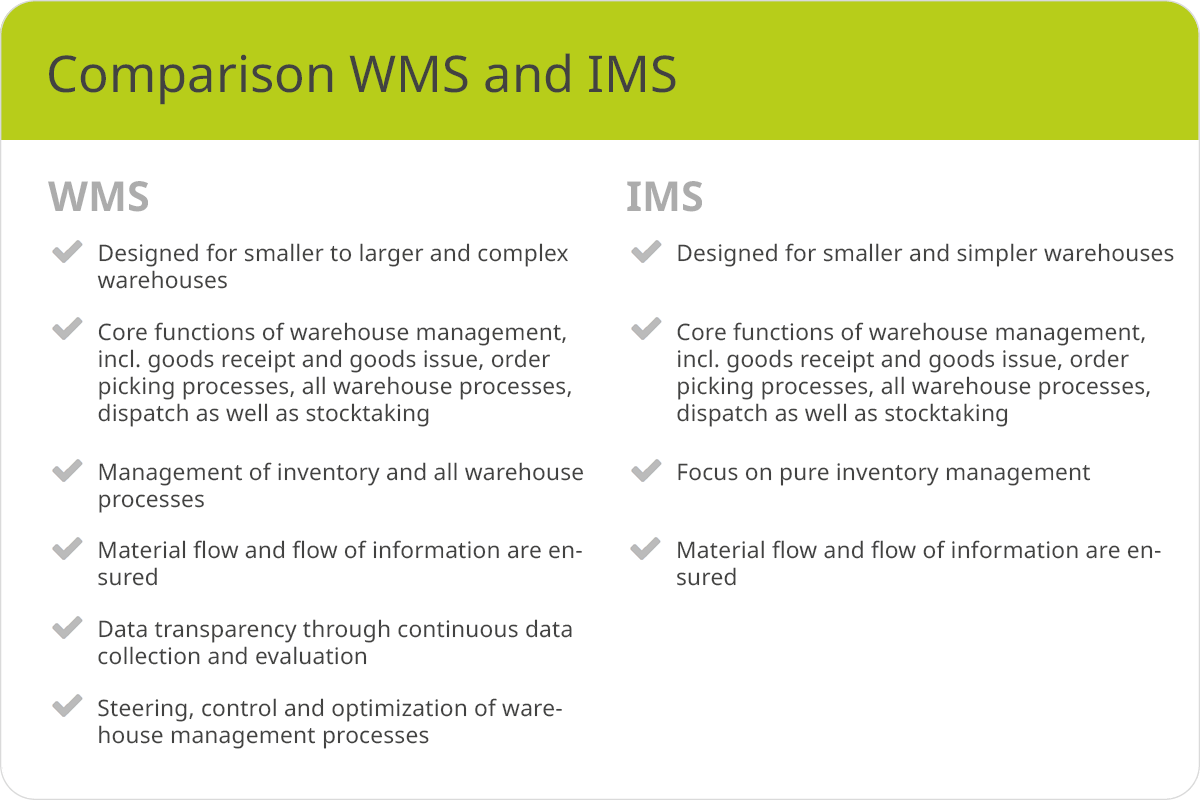
What are the advantages of using a WMS?
The decisive advantage of a WMS is that it intelligently extends the core functions of an IMS and optimizes warehouse processes. The use in a production-related warehouse is just as possible as in a dispatch warehouse or distribution center.
If you decide to use a WMS, you are not only starting the digitalization of your warehouse, but also investing in a future-proof system for your warehouse processes.
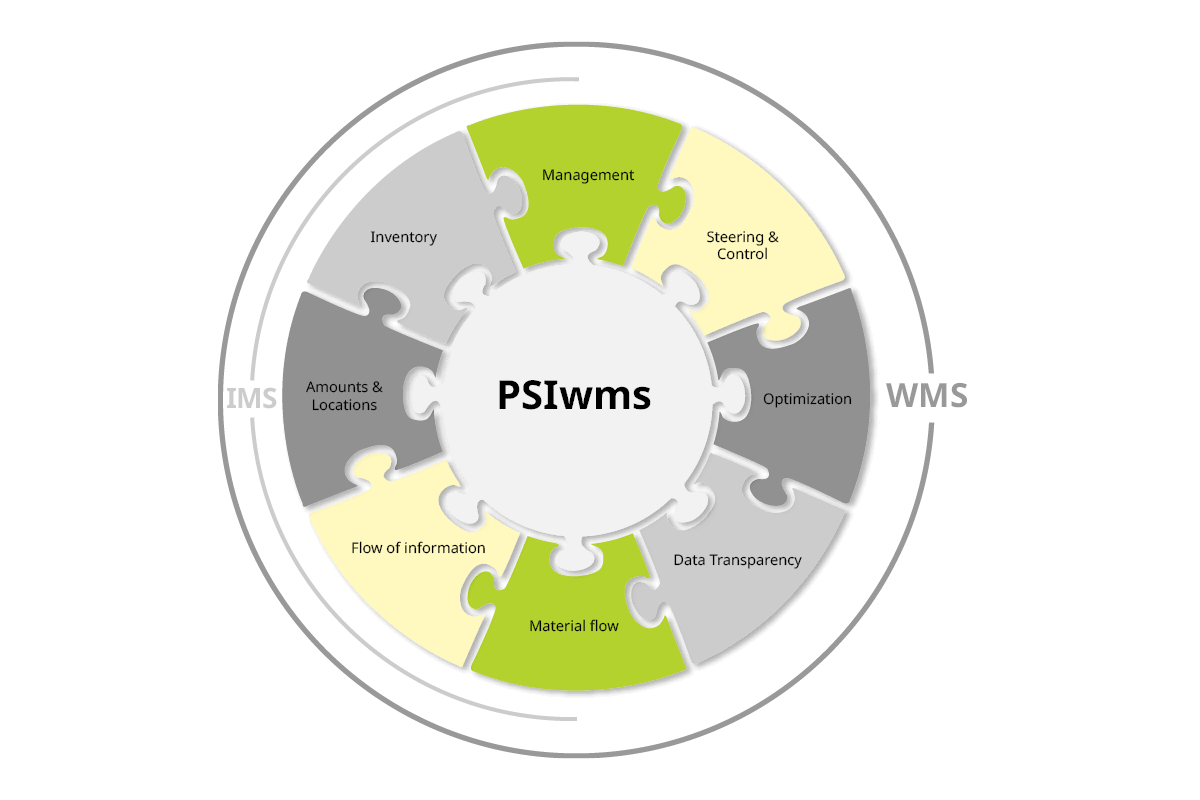
Ultimately, both terms describe the software for warehouse management in logistics. The inventory management software covers classical warehouse management in the true sense, whereas the warehouse management system covers intelligent control and process optimization in the warehouse. Despite their different functions, the two terms are often used as synonyms in German.
Into the future with digital transformation
If you decide to use a WMS when digitalizing your warehouse, take a look at our PSIwms [psilogistics.com]. It covers both classic inventory management and the functional requirements of a WMS, and complies with the VDI 3601 guideline. This gives you all the advantages of a future-oriented warehouse management system for your logistics.
Together with our customers, we are constantly developing our software solution. We work closely with leading partners from industry and science to provide you with a state-of-the-art WMS. This leads to continuous product releases that typically provide you with enhanced functionalities. With PSIwms you get more than an inventory management system.

